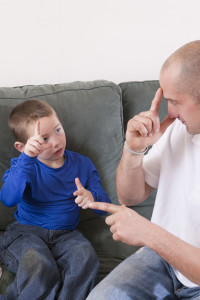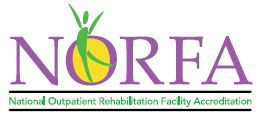Learning Together: The Benefits of Attaining Sign Language with Your Deaf Child

Hurdling Over Obstacles
Statistics show that some parents of deaf children fail to learn sign language, making communication difficult. Additionally, some parents who attempt to learn to sign fail to master the language. The cause for this problem can vary with each parent. Some refuse to learn sign language because they see their child’s deafness as a “disability” or want to mold their child into a life of “normality”. Whatever the case, it’s very important to understand that your child’s development and your family’s interactions can be greatly improved by learning how to sign.
Understanding the Benefits
Learning a new language can be a challenge, no matter the circumstance. However, learning ASL can help you deal with the tantrums and impatience that your child may exhibit as he/she tries to communicate with you. Giving your child the opportunity to learn sign language and making sure you become fluent will allow them a chance to express how they’re feeling, what they need and what they want in a more effective manner.
Research has additionally revealed that a child who is exposed to sign language at birth will have greater chances of learning spoken language compared to kids who learn to sign later in life. These children have also shown to be highly successful in literacy and education.
Your Child is Our Priority
There’s absolutely nothing that can take the joy out of establishing a life-long connection with your child. Let’s help your child’s communication and language skills develop and grow with our speech-language pathologist and occupational therapist by his/her side.


